Kids spend much of their young lives herded into groups. Now we'll sing, now we'll march in a circle, now everybody clap your hands. Many group activities are terrific fun for young children. Kids often gravitate toward the group and love to sing together, play with a parachute or hear a group story. But there are always times when a child doesn't feel like participating. What to do about that?
A dance teacher recently asked me how to handle kids who didn't want to follow the group activity during the 45-minute class. It was especially frustrating for her since the kids all genuinely liked dance and wanted to be there. No one was forcing them to take the class.
Kids have the right not to participate in a group. Don't force kids to join in. Here are some ideas why:
Don't feel like it. Some days kids like being part of a group, and some days they don't. Sometimes they feel ready to try new things, and other days life seems overwhelming. It's OK for moods and interest to change day by day.
They're scared or worried. Kids back away when they feel uncomfortable about something. Maybe the activity scares them (the whoosh of the parachute, a loud noise), maybe they're worried about another child in the group and what she might do, maybe the group leader's voice or style worries them. Feelings need to be respected. Try asking "Is there something you're worried about?" or "Is there something you don't like?"
Observers deserve respect. Some children are observers. Especially in group settings, they may not be ready to participate, but are actively learning by soaking up the group action around them. Many times a child who never opens his mouth to sing at school will come home and sing all the songs at home for his parents. This type of learning can't be hurried. Kids will observe until they are ready to try more (often longer than an adult judges is 'long enough').
Kids are individuals. Some kids (and adults) don't like groups. Some kids can't take it. Groups can also be developmentally overwhelming or overstimulating for a variety of reasons. Remember, a group is made of a collection of individuals with varying needs.
Don't force kids to participate, but don't let their actions disrupt the group.
So what to do when it's group time? Find a space where they can be. Don't worry if they sit when everyone else stands. Set limits to protect both the individual and the group. "If you want to stand, stand in the back of the room so other kids can see the pictures." "You don't have to dance, but that's what we're doing now. Move to the window so you don't get bumped."
It's hard for us to watch a child who doesn't do what the group does. As an adult, it can feel disruptive or disrespectful. It can also pain us, seeing a child who doesn't fit in or isn't choosing to fit in. But it's worse to force conformity. What sort of lesson is that? Children need to learn to trust their feelings and fears. When it comes to groups, we don't want kids to learn that it's more important to conform and be like the rest even if they feel uncomfortable. Peer pressure only grows stronger as the years go on.
What's your experience balancing group needs with non-participation? Have you ever seen the wonders of observation?
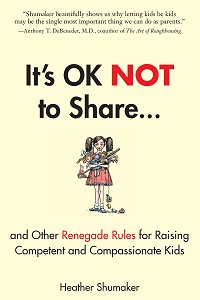 Find more in It's OK Not To Share...And Other Renegade Rules for Raising Competent and Compassionate Kids, a "Best Parenting Book of 2012" by Parents magazine's Parents.com. Or visit heathershumaker.com to learn more.
Find more in It's OK Not To Share...And Other Renegade Rules for Raising Competent and Compassionate Kids, a "Best Parenting Book of 2012" by Parents magazine's Parents.com. Or visit heathershumaker.com to learn more.

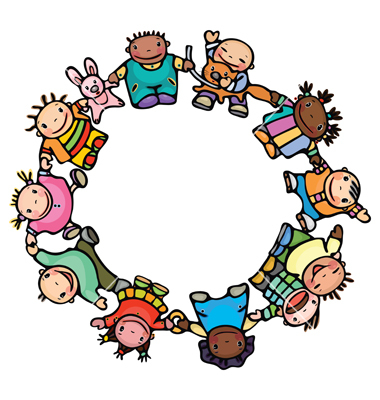
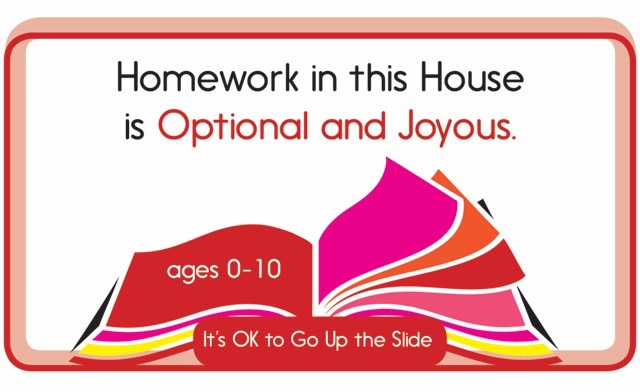
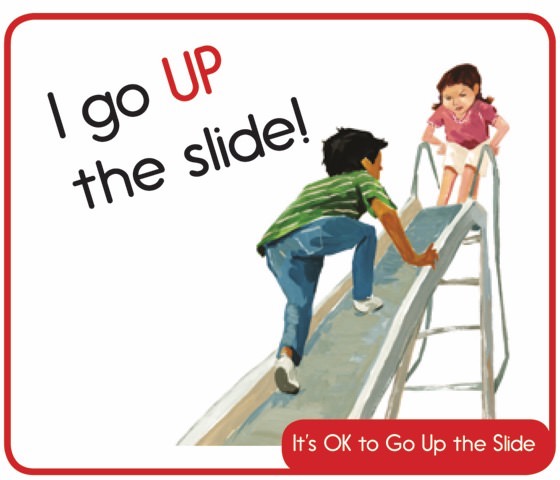
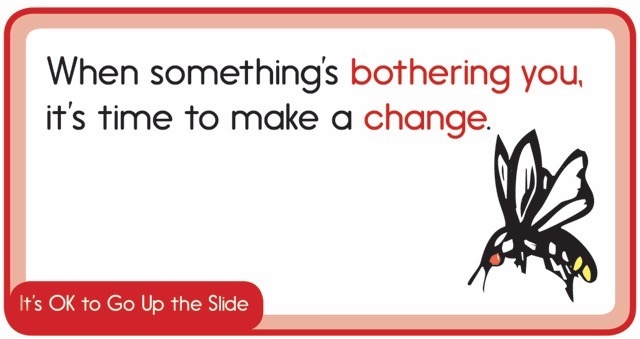
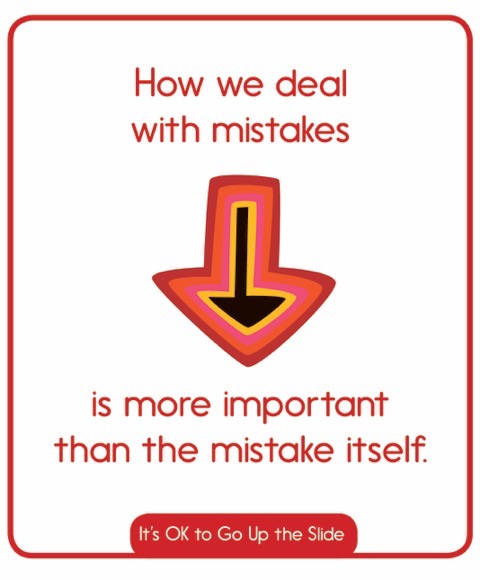
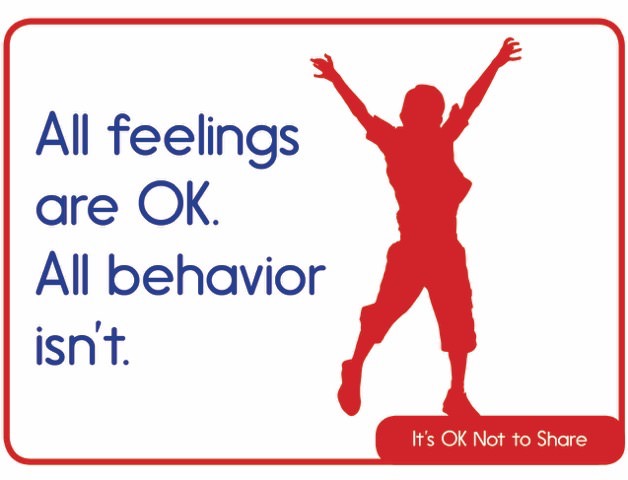
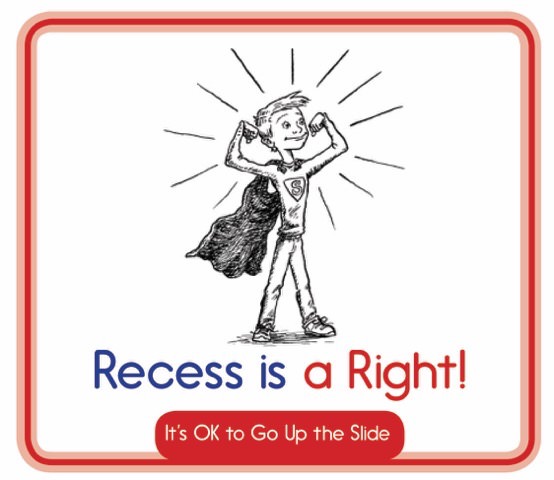
I really loved this article. I am a para professional in Dade Co. Schools and have been trying to get this across to the teacher in my class all year. It is good to see it in print. I also liked the examples to connect with these children.
Thanks! Glad it's helpful.
I was thinking about this regarding my daughter (who is almost 4) and kindergarten/grade school. She's always been comfortable and happy watching activity at preschool or anywhere else until she feels ready to join (which doesn't always happen). I worry about her being forced to join story time, and worse, music class or gym class. She's got two years until she's eligible to start public school, so I know she'll change a lot, but it's definitely something I'll be giving a lot of thought to over the next couple years.
Three is an age many kids thrive as observers. Glad you're thinking about this issue. Sometimes just letting other adults know you're fine with her observing style is all it takes to make everyone comfortable. An "It's OK with me if it's OK with you" can take you a long way.
I am very grateful for your article. You have touched on a very delicate subject and handled it perfectly, I am not sure what happens in the classroom of all ages, but we forget the individual child the moment they enter a center. Your article deals with all ages in care. Some of the youngest infants are exposed to circle time and report cards when they enter care. Often times a child's facial expression isnot taken into account when herded into group activities. I understand that children have to comply, but when they cannot for whatever reason, they can be labeled as non-compliant, learning disabled and the list goes on. Your post is so valuable. I wish we could rethink these group activities for the very young. There will be plenty of time for children to stand in line and wait.
You're welcome. Yes, group time for young kids seems to get younger and younger.
I am an EC teacher in a self-contained classroom for children with autism. We have desks, bean bags, etc. where students can sit away from the group, yet have parallel participation. In addition, we have "break cards" available for those willing to sit with the group, but may become overstimulated during a lesson. Students with autism often struggle to look, listen, sit, and process information simultaneously. It is often in their best interest to let them keep a comfortable distance and interact at their own pace to avoid anxiety, overstimulation, and/or unwanted behaviors. Thank you for this article. I think it applies to all children, especially those with sensory processing issues.
You bring up important points. There's such a range of individuals, and groups do provide an enormous amount of stimulation. Keep up your wonderful work.
I like this but I would like more information on what is developmentally appropriate. What age do we start working with them to identify what they are feeling so they can learn to get over their fears? I doubt a fifth grade teacher is going to be ok with a child sitting out of whatever activity they choose, at some point we have to teach them that they are going to have to do things they don't want to, like homework. I definitely agree with this article but there has got to be a next step here to transition them from young learners exploring themselves and their world to academic achievers that are learning that the world has rules and expectations of them.
Thanks for your thoughtful comments. I'd certainly ask a 2-year-old on up if they're scared of something, or something's bothering them. You never know what it might be. A scary-looking tree branch by the window, a kid who pushes them... As for transitioning to the next stage, that's an excellent question. I believe it's a gradual combination of both respecting individual styles/ fears and setting expectations. Other ideas?
In my recently published book All About Bullying (Alles over pesten, see url) I approach the problem of bullying from a psychological, sociological, historical and philosophical perspective. The idea of a childhood in which a child grows up with allmoste uniquely other children from the same age (as happens in schools), is quite new. People used to live in vertical groups (different ages), which had two important benefits: 1) your position (and status) is a given fact which automatically changes in time (for new group members arrive and old members die) and 2) social knowledge about group life can be transferred from one generation to the next. These are two important features that lack in schools, where children have to define their position in the group against other group members of the same age, and without the knowledge of how to be a positve and supportive group. That is an important reason why bullying is a main problem in schools. Now, with regard to your story I would like to add the possibility of bullying: the child is bullied, the group is not safe. Of course this refers to your suggestion that a child might be worried, but if he or she is bullied, there is also a possibility that he or she cannot tell you about it, for this will reinforce the bullies and the child will severely be punished for telling.
Best of luck with your book. Yes, groups are not always safe. Kids - spectators, not just the picked on child - need support speaking up and setting limits on behavior that hurts people.
Loved this line, "Don’t force kids to participate, but don’t let their actions disrupt the group."
Thanks for this nice short article!
You put your finger on the heart of it.
very very true- it's hard to convince teachers to allow children not to participate or join when they are ready
Thank you for this article. On my son's first day of Kindergarten, I was asked to see the teacher after class. She told me my son was extremely defiant. Horrified, I asked what happened. She said he refused to to stand up and introduce himself when it was explained that the whole class would have to. She then asked if he frequently displayed this type of defiant behavior. I thought "Really?? A new school, new teacher, new classmates, is it any wonder why he might be hesitant?". It's too bad she didn't read this article.
Gina, this story is remarkable - except that it's also unfortunately common. Thanks so much for sharing. Would you mind if I share this story as an example? Hope your son's found a better fit this school year!
Please, feel free to share. It is my hope that no child should have to be labeled "defiant" when the whole situation isn't taken into account.
Yes, thank goodness, this year he has a better fit!
As I kindergarten teacher, I always am careful not to create situations where the children are forced to be self-conscious and often embarrassed. Their consciousness of self is slowly waking up, at their own rate, and does not need to be forced. Some children simply are not ready to be noticed by naming themselves, or even being part of a daily 'show-and-tell.' And I have visited so many early childhood programs where indeed the children are made to introduce themselves, to "share" something for their experiences, etc...It is because adults in general seem not to understand early childhood development and it makes me sad.
Thanks so much for this article. It's been a month since my son joined playgroup, and I can always see from the videos and the photos which his teachers send across that unlike his classmates, he does not take much interest in group activities. He is however fine when left to do stuff on his own like modelling clay or playing with building blocks. Your article offers me so much relief. I now see that I have become too much panicky for no reason at all. Thanks once again.
It also sounds like your child's teacher understands his need for agency by choosing not to force group participation. As an EC teacher I believe all things start from relationships. By developing a string, reciprocal relationship with your child, his teacher can better read his cues and signals and create a safe space for him share his feelings about group time. It may be that by playing parallel to the group he is actually developing strong auditory skills and taking in the learning that is occurring at his own pace. Sounds like a nice kindergarten.